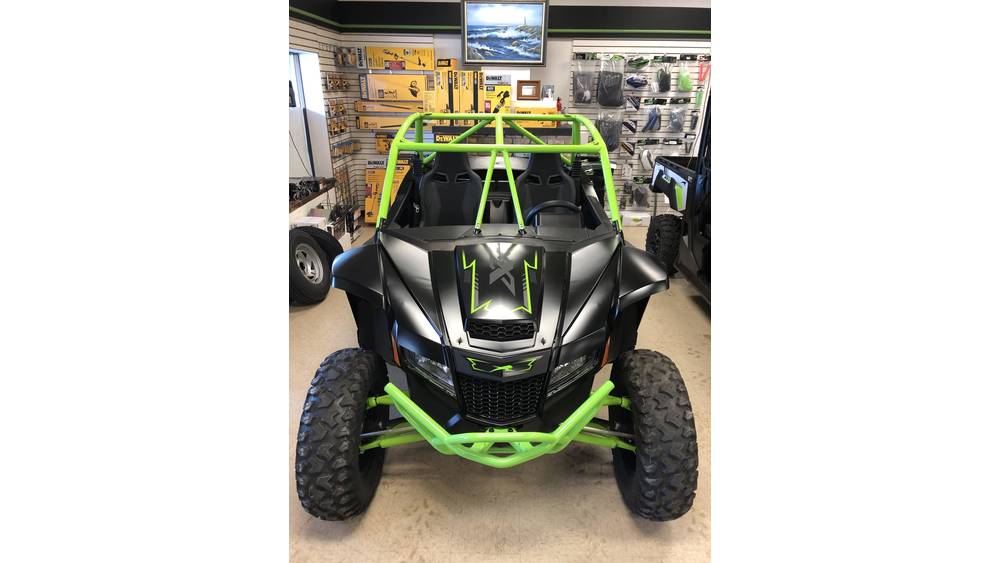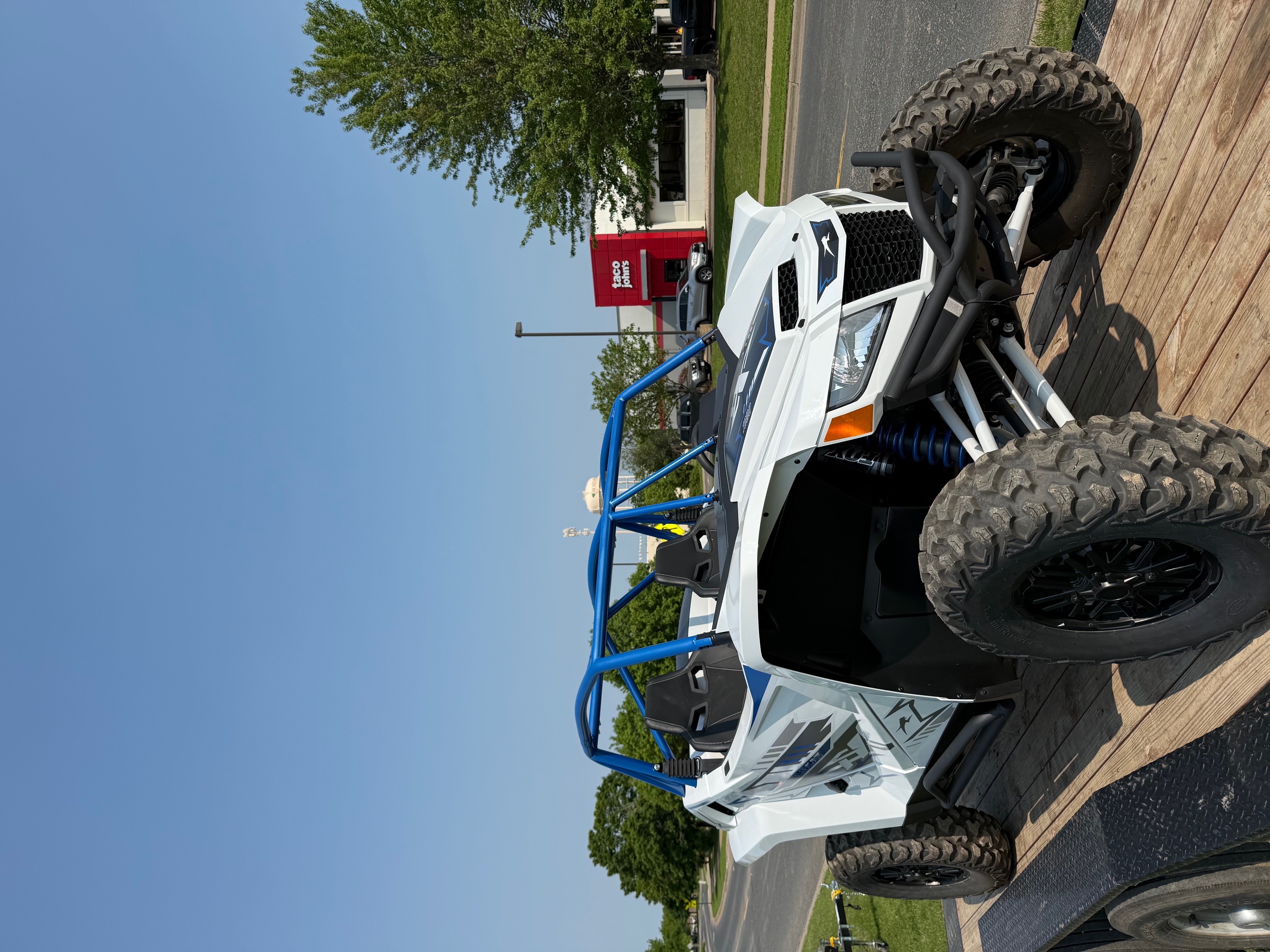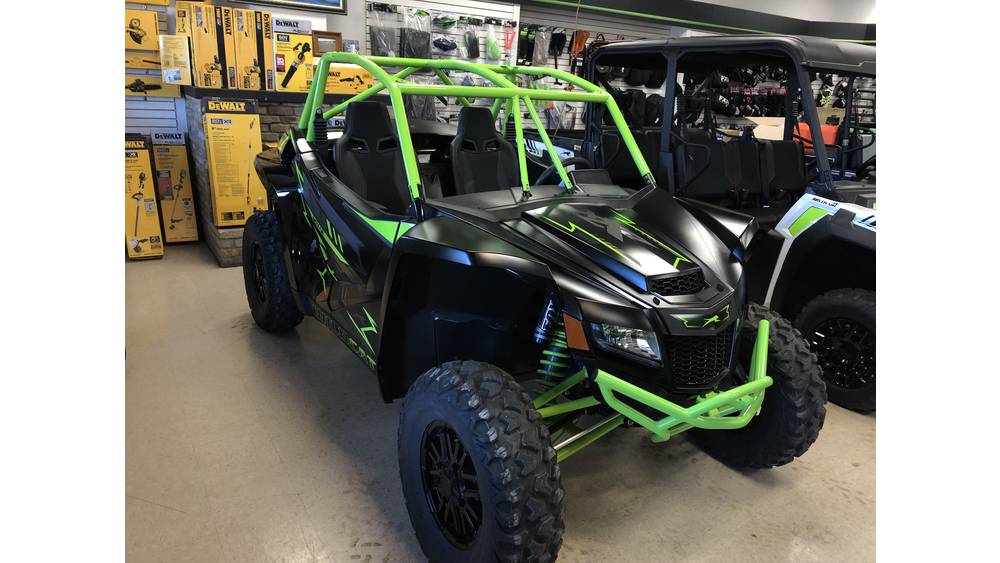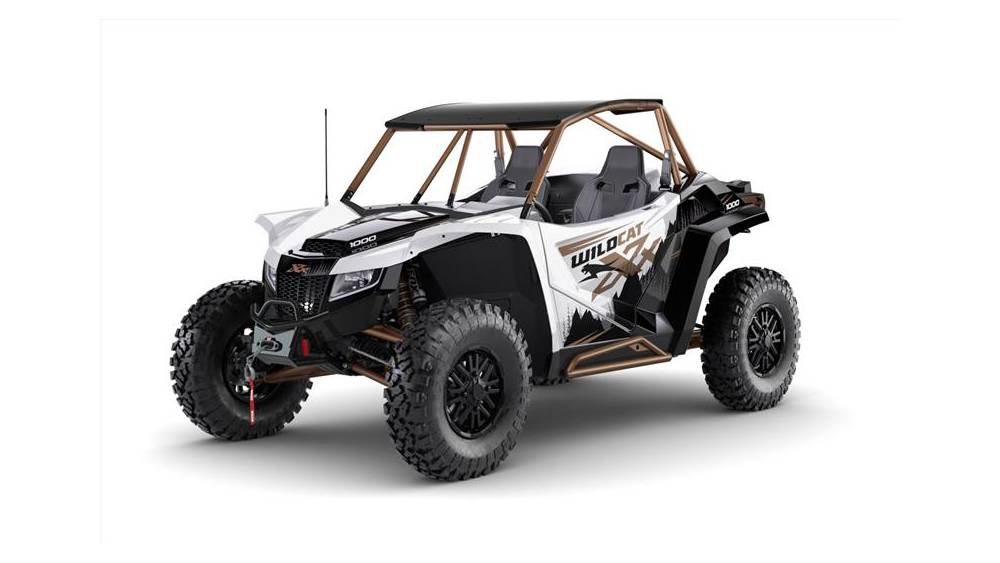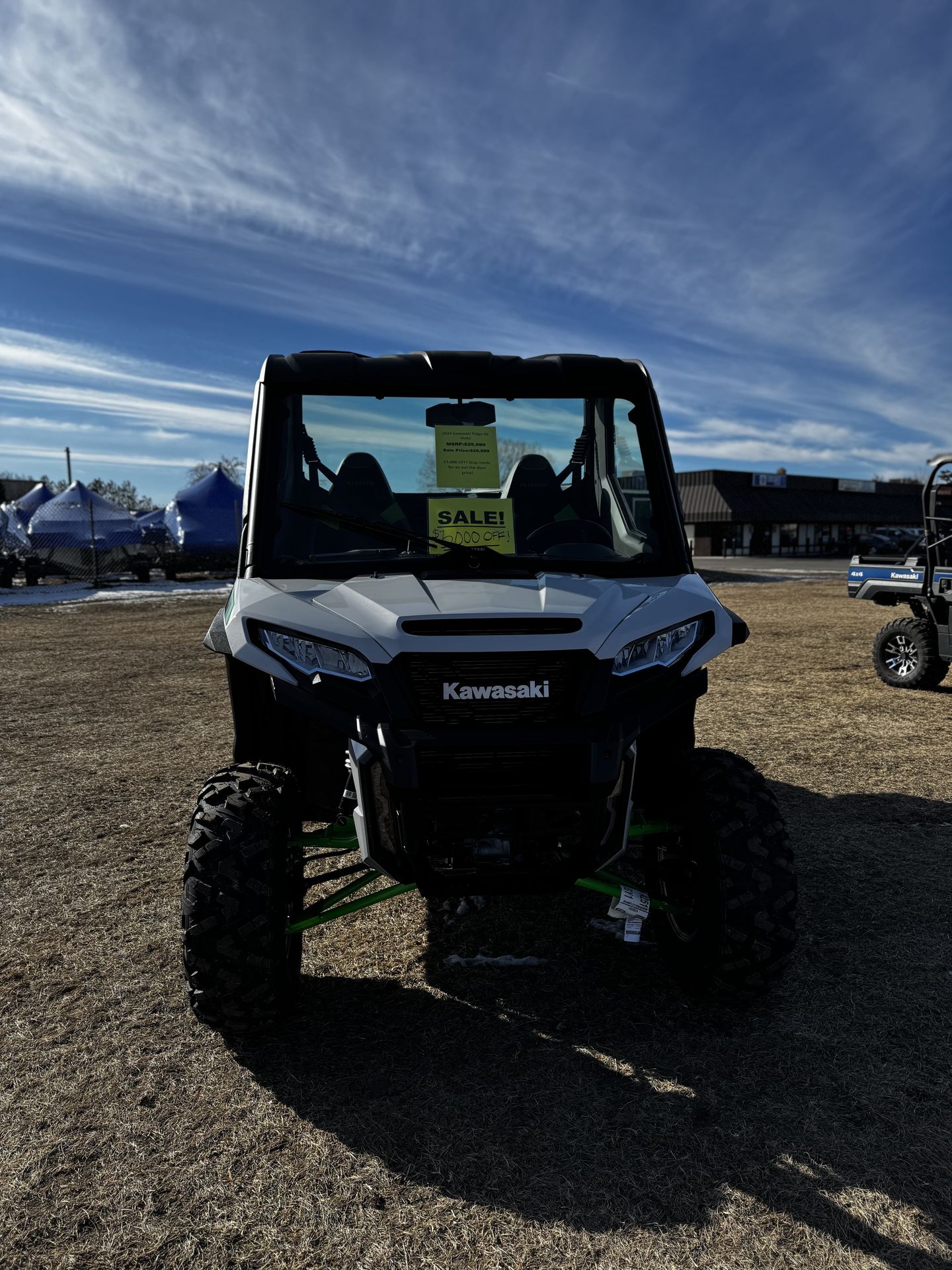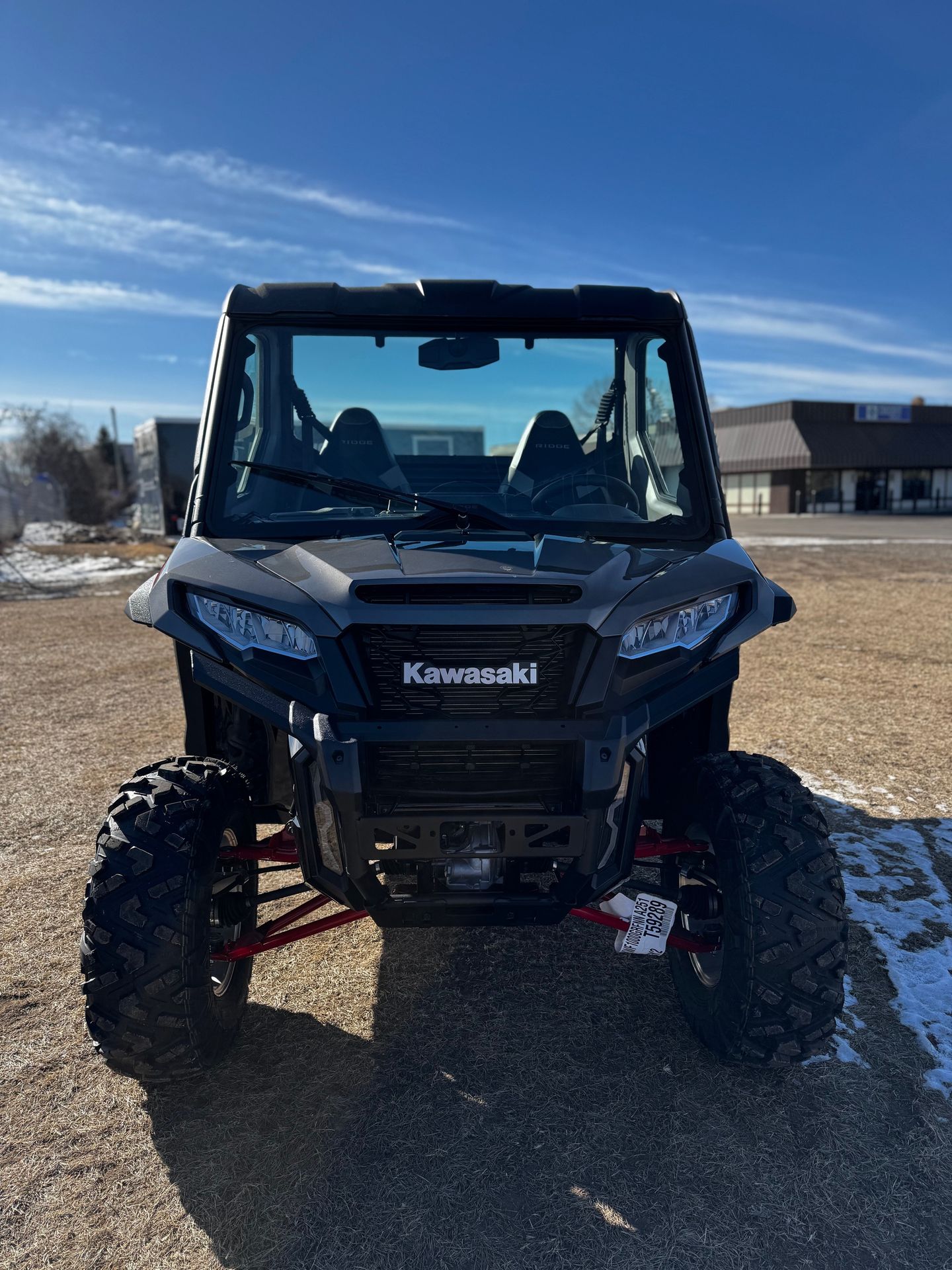New Models For Sale in Rosemount, MN
2025 John Deere 220SL






Get in Touch
Description
2025 John Deere 220SL
Features May Include:
- Speed Link™ height-of-cut system adjusts both sides of the roller at the same time
The ultimate in quick and accurate height-of-cut adjustments: The Speed Link height-of-cut adjustment system ties both sides of the front roller together, allowing technicians to make height-of-cut adjustments simply by adjusting one end of the roller.
How does this innovative system accomplish a one-point height-of-cut adjustment? It all starts with the worm gear drives in the front-roller castings. The worm gear system rotates via hex bolts on the side of the rear-roller castings, adjusting the roller up and down. Simply turn the gears by turning the hex adjuster on the side of the casting. Each full turn represents an adjustment of 0.001 in. (0.0254 mm). A diagram on the side of the casting tells which direction to turn the hex bolts to raise or lower the cutting height.
But that's not all. The true secret to the system is the connecting rod that ties the worm gear systems for the roller tower together. With the connecting rod in place, turning the height-of-cut adjuster on one side automatically turns the other side by the exact same amount. This allows for adjusting the height of cut from one end of the roller, making adjustments not only quick, but with stunning precision.
The Speed Link connecting rod is also spring loaded, so it can be easily removed should both towers need to be adjusted independently. Once the roller is paralleled to the front roller when the cutting unit is initially set up, the Speed Link system takes over and moves each side of the roller by the same amount for a quick one-point height-of-cut adjustment.
The preferred way to adjust the cutting unit is with a variable-speed electric or air drill with a 16-mm socket attached. A drill makes the adjustment even easier by rotating the tower quickly, making height-of-cut changes a breeze. And the connecting rod makes ensures the other side turns just as fast and just as accurately.
- Optional brushes help stand the grass up for a cleaner cut and improved striping appearance
There are several options for brushes that can be utilized to improve the look and health of your greens.
Brushes will be best used when the desire is to stand the grass plant up vertical prior to cutting by the reel and to increase the appearance of the mower stripe on the green.
The brush will not remove or slice plant material like the blades of our Greens Tender Conditioner (GTC). Therefore, the use of both attachments may be the best combination, depending on the greens and turf type.
- Consistent effective height of cut—A prism tells the story
No matter the type of reel cutting unit or surface being mowed, there are two ways to measure height of cut. The first measure is called benchsetting height of cut. This height of cut is established by using a gauge bar and measuring the distance from the bottom of the rollers to the top edge of the bedknife. This serves as an initial guide for establishing the cutting height.
However, the cutting unit may not be mowing exactly at this height. Other factors come into play, such as softness or firmness of the mowing surface, thatch, turf density, roller shape and surface area, and weight, just to name a few. More than likely, after these factors are taken into consideration, the turf is being mowed at a height less than the benchsetting height of cut. The actual cutting height is called effective height of cut.
How is the effective height of cut measured? It can only be measured with a prism gauge, which uses a series of mirrors to visually show the horizontal profile of the turf. The prism essentially shows the turf rotated upward 90 degrees, so the actual height of cut can easily be seen.
Understanding effective height of cut versus benchsetting height of cut is critical when evaluating a greens mower. Traditional fixed-head walk-behind greens mowers such as the 180SL, 220SL, and 260SL will almost always cut at a lower effective height of cut compared to recent floating-head walk-behind greens mowers.
- Roller attaching system for quick removal and installation of the front roller for changing conditions
The ability to quickly adapt to the changing conditions is what golf courses have been doing for years. The SL model walk greens mowers from John Deere gives you the ability to meet the demanding needs of any green and helps you with the changing conditions.
The front roller bracket on the SL line gives you the ability to quickly change your front roller for the changing conditions that most greens see during the growing season. This gives you the ability to change from a grooved roller to a smooth roller with minimal effect on your bench setting and saves the time for the golf course technician.
How this feature works is each roller bracket has two sections that are bolted together to clamp the roller in place. The top section, connected to the Speed Link™ system, does not move when you remove the roller, thus keeping the height consistent. By removing the bottom bolt on each side, the front roller can be quickly removed from the machine, saving time and money while ensuring you have the correct roller for your condition.
- Narrow front-roller-to-rear-drum distance for contour following and cleanup-pass cut quality
The line of SL Walk Greens Mowers features a narrow front-roller-to-rear-drum distance for easy turning, maneuverability, and cleanup-pass cutting performance. With a Greens Tender™ Conditioner (GTC) installed, this distance is 13.5 in. (342 mm).
A narrow front-roller-to-rear-drum base increases performance in undulations, minimizing scalping opportunities and improving cut quality.
By keeping the roller base narrow, the John Deere SL models requires very little effort to lift the front roller to make a turn. As this distance increases, turning effort becomes much more difficult, reducing operator comfort during mowing.
Another benefit of the narrow front-to-rear base is maneuverability. By keeping the distance as short as possible, the machine becomes much easier to steer and requires little tracking effort on every pass. As this distance increases, opportunities for difficult steering and less-than-optimal tracking become much more prevalent.
These are important considerations when comparing to a floating-head walk-behind greens mower. Some of these competitive units feature front-roller-to-rear-drum distances that are up to 2.86 in. (72.6 mm) more than the John Deere SL models. This added distance increases lifting effort during turns and makes it more difficult to keep the machines on track.
Also important to note is the quality of cut in the cleanup pass. Cleanup passes are made in the same track every single time they are mowed. A longer machine with limited steering means the front roller drags across the turf in the cleanup pass, eventually thinning out the turf and hurting its quality. The John Deere SL models limit this impact with its narrow front-roller-to-rear-drum distance.
Info
Industry
Agriculture
Make
John Deere
Model
220SL
Trim
Base
Year
2025
MSRP
N/A
Category
Lawn Mower
Subcategory
Walking
Specs
Cutting Width
22 in
Fuel Type
Regular grade unleaded or leaded
Clutch
transport: Belt tension
Oil Capacity
0.63 qt
Length
37 in
Width
37.25 in
Blades
number: 11 or 14 blade
Displacement
piston: 7.4
Fuel Capacity
0.66 gal
Cutting Height
standard: 0.125 in
Engine Type
Air-cooled, Gas
Power/Horsepower
3.2 hp
Oil Type
SAE 30 or SAE 10W-30
Height
47 in
Weight
219 lb
You May Also Like
N/A N/A N/A N/A
Get in Touch
Info
Industry
N/A
Make
N/A
Model
N/A
Trim
N/A
Year
N/A
MSRP
N/A
Category
N/A
Subcategory
N/A
You May Also Like
N/A N/A N/A N/A
Get in Touch
Info
Industry
N/A
Make
N/A
Model
N/A
Trim
N/A
Year
N/A
MSRP
N/A
Category
N/A
Subcategory
N/A

